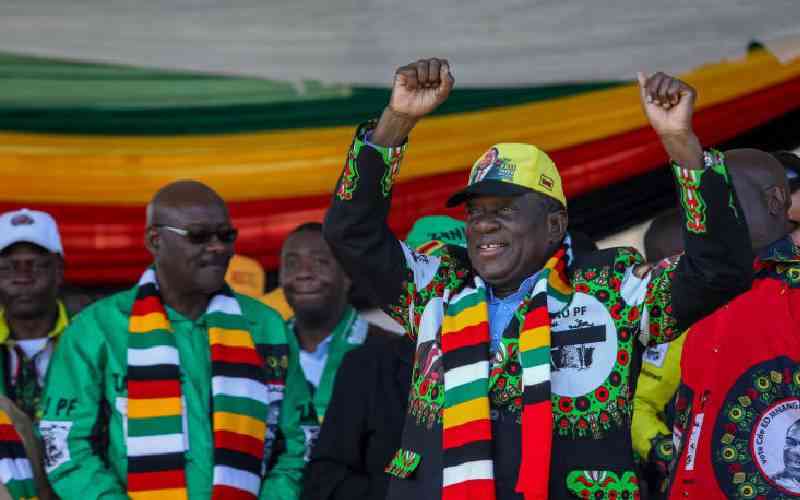×
The Standard e-Paper
Stay Informed, Even Offline

President Emmerson Dambudzo Mnangagwa of Zimbabwe has struck up a keen friendship with controversy.
Last week, he tucked his tail after much furore and set August 23 as the D-date for the southern African country's elections. Popular as 'ED' or the 'crocodile', the 80-year-old president will be seeking a fresh term. He will face off with Nelson Chamisa, 45, leader of the restive Citizens' Coalition for Change.